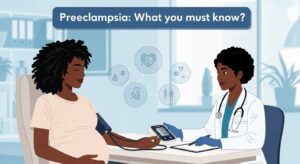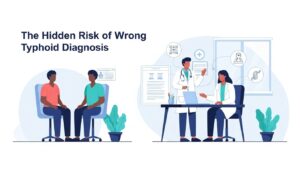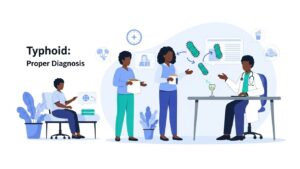1. What is low libido in women?
Low libido in women refers to a persistent decrease in sexual desire or interest in sexual activities. It can be temporary or long-term, depending on various biological, psychological, and lifestyle factors.
2. What are the common causes of low libido in women?
Some common causes include:
- Hormonal imbalances (such as during menopause or pregnancy)
- Psychological issues like depression, anxiety, or stress
- Relationship problems or emotional disconnect
- Chronic health conditions (e.g., diabetes, thyroid issues)
- Side effects of medications (e.g., antidepressants, contraceptives)
3. What are the symptoms of low libido in women?
Symptoms include a lack of interest in sexual activity, reduced pleasure during sex, fewer sexual fantasies, and minimal response to sexual cues. If these symptoms persist for more than six months and cause distress, it may indicate Hypoactive Sexual Desire Disorder (HSDD).
4. How does menopause affect a woman’s libido?
Menopause lowers estrogen and testosterone levels, leading to vaginal dryness, discomfort during sex, and reduced sexual desire. Hormone replacement therapy can help alleviate some of these symptoms.
5. Can stress affect a woman’s sex drive?
Yes, stress can significantly lower libido by making it difficult to relax and enjoy intimacy. Stress management practices like yoga, mindfulness, and relaxation techniques can help restore sexual desire.
6. What role do hormones play in sexual desire?
Estrogen, testosterone, and progesterone regulate sexual desire. Low levels of these hormones—due to life events such as pregnancy, breastfeeding, or menopause—can decrease libido.
7. How is low libido diagnosed?
A healthcare provider may diagnose low libido based on a medical and sexual history, symptoms, and possible hormone tests. If symptoms persist for more than six months and cause emotional distress, the condition may be classified as HSDD.
8. What are some natural remedies to improve libido?
- Exercise: Boosts endorphins and self-confidence.
- Diet: Foods rich in zinc (oysters, seeds) improve sexual health.
- Sleep: Proper rest helps maintain energy levels for sexual activity.
- Stress Management: Practices like meditation or yoga improve relaxation and libido.
9. Can relationship problems cause low libido?
Yes, emotional disconnect, unresolved conflicts, and lack of communication in a relationship can lower sexual desire. Couples therapy can help improve intimacy and restore libido.
10. When should I see a doctor about low libido?
If low libido persists for more than six months, causes distress, or affects your relationship, it’s advisable to consult a healthcare provider for evaluation and treatment options.
11. Are there medical treatments for low libido?
Yes, treatments include hormone replacement therapy, testosterone patches, and medications that target neurotransmitters like dopamine. A healthcare provider can help recommend the best treatment based on the individual’s condition.
12. Can antidepressants lower libido?
Yes, antidepressants, particularly SSRIs, are known to reduce sexual desire as a side effect. If this occurs, consult with a healthcare provider to explore alternative medications or solutions.
13. Is it normal for libido to fluctuate over time?
Yes, it is normal for libido to vary throughout life due to factors such as stress, pregnancy, menopause, or health changes. However, persistent low libido may need professional attention.
14. Can low libido improve with lifestyle changes?
Absolutely. Regular exercise, a healthy diet, stress management, and quality sleep can enhance sexual health and increase libido over time.
15. What is Hypoactive Sexual Desire Disorder (HSDD)?
HSDD is a medical condition characterised by a persistent lack of sexual desire that causes emotional distress or relationship issues. It requires evaluation by a healthcare professional for appropriate treatment.
Contact Well-Life Hospital
At Well-Life Hospital, a renowned infertility treatment center located at No. 12 Atbara Street, Wuse 2, Abuja, FCT, we are dedicated to providing compassionate and comprehensive care to help you on your journey to parenthood. To learn more about our IVF services and to book a consultation, visit our website or contact us today.
- Website: welllifehospital.com
- Instagram: @welllifehospital
- Facebook: Well Life Hospital
- Twitter: @Well_Life_H
- TikTok: @welllifehospital
- YouTube: Well Life Hospital
- Mobile : +234 906 000 4314
… Your wellbeing is our goal






